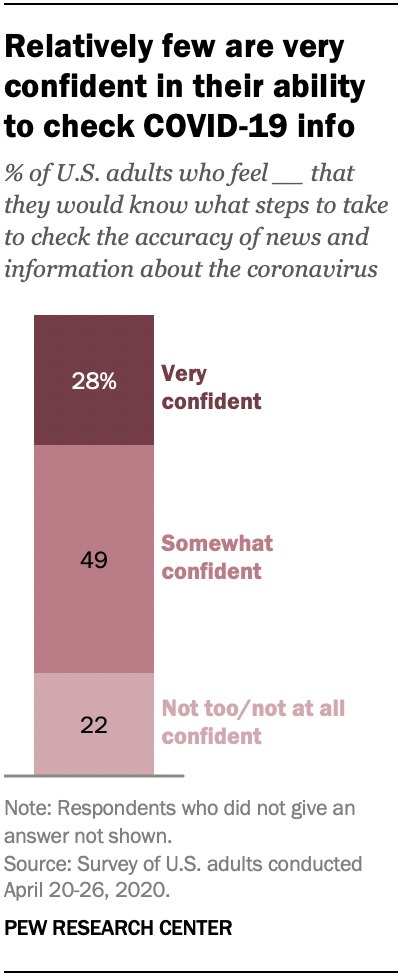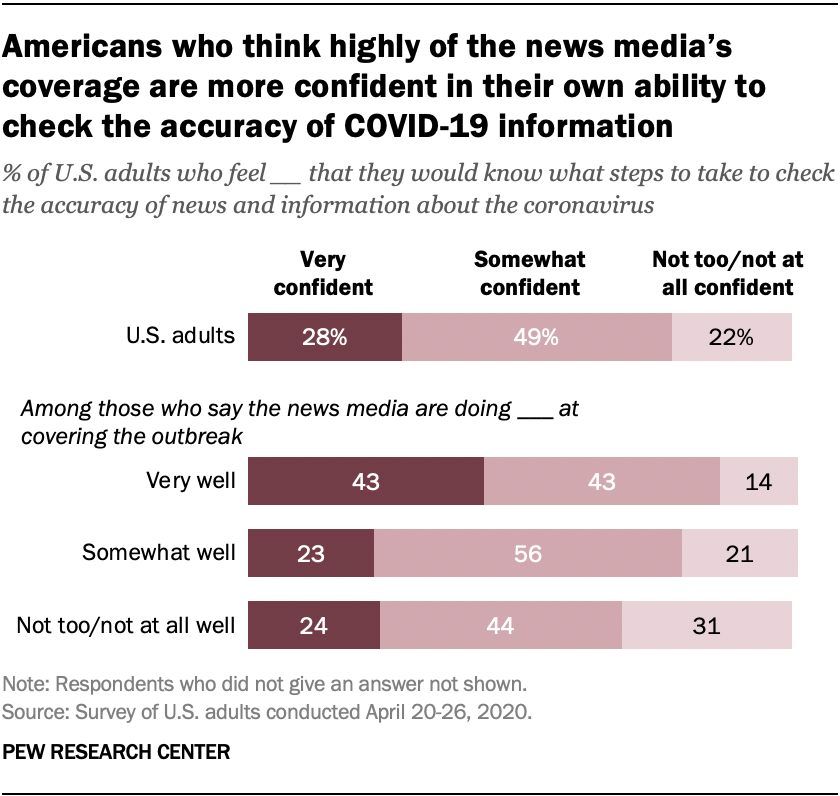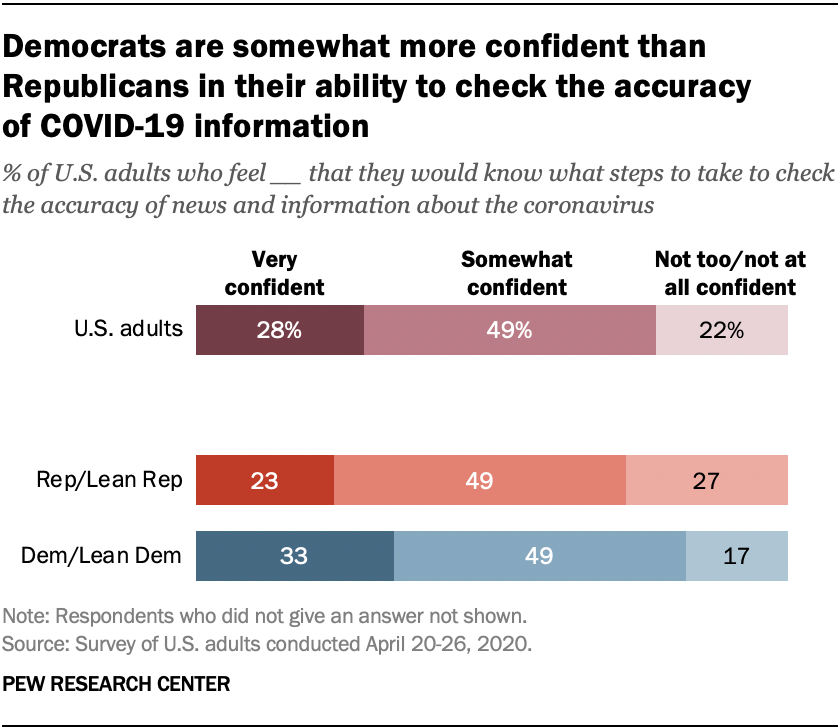
Most U.S. adults report having seen made-up news about COVID-19, and many have seen various claims about purported treatments. But relatively few Americans have a lot of confidence in their own ability to check the accuracy of the news and information they come across related to the coronavirus.
About three-in-ten U.S. adults (28%) say they are very confident that they would know what steps to take to check the accuracy of news and information about the coronavirus outbreak. A slightly smaller portion (22%) say they are not too or not at all confident, while the largest share – around half (49%) – express some confidence. These findings come from a Pew Research Center survey conducted April 20 to 26 among 10,139 adults who are part of the Center’s American Trends Panel.
How we did this
This analysis of Americans’ confidence in their ability to fact check COVID-19 information is based on a survey of 10,139 U.S. adults conducted April 20-26, 2020. Everyone who took part in the survey is a member of Pew Research Center’s American Trends Panel, an online survey panel that is recruited through national, random sampling of residential addresses. Recruiting our panelists by phone or mail ensures that nearly all U.S. adults have a chance of selection. This gives us confidence that any sample can represent the whole population (see our Methods 101 explainer on random sampling). To further ensure that each survey reflects a balanced cross section of the nation, the data is weighted to match the U.S. adult population by gender, race, ethnicity, partisan affiliation, education and other categories.
Here are the questions asked in this survey, along with responses, and the methodology.
This analysis was made possible by The Pew Charitable Trusts, which received support from the John S. and James L. Knight Foundation.

In the new survey, Americans who think highly of the news media’s coverage of the coronavirus outbreak are much more confident in their own ability to check the facts.
Around four-in-ten (43%) of those Americans who think the news media are covering the outbreak very well say they are very confident in their own ability to check the accuracy of COVID-19 information. That compares with around a quarter of those who think the media are doing somewhat well (23%) or not too or not at all well (24%) at covering the outbreak. Views of the news media’s coverage of the outbreak align closely with people’s confidence in their own fact-checking abilities even after accounting for how closely Americans are paying attention to COVID-19 news.

In both partisan coalitions, relatively few people are highly confident in their ability to check the accuracy of COVID-19 news and information, though there are some differences by party. A third of Democrats and Democratic-leaning independents (33%) feel very confident, 10 percentage points higher than the portion of Republicans and Republican leaners who express a high level of confidence (23%). Republicans, on the other hand, are 10 points more likely than Democrats to feel not too or not at all confident (27% vs. 17%).
Modest differences also emerge by demographic characteristics, most notably by level of education and race and ethnicity. About a third of Americans who have at least a bachelor’s degree (35%) feel highly confident in their own ability to check COVID-19 news and information, somewhat higher than the share among those who have some college education (28%) and those who have a high school diploma or less (24%). Also, black Americans (35%) are somewhat more likely to be very confident than white (27%) and Hispanic adults (28%).
Note: You can find much of the data from this analysis in this interactive tool. Here are the questions asked in this survey, along with responses, and its methodology.